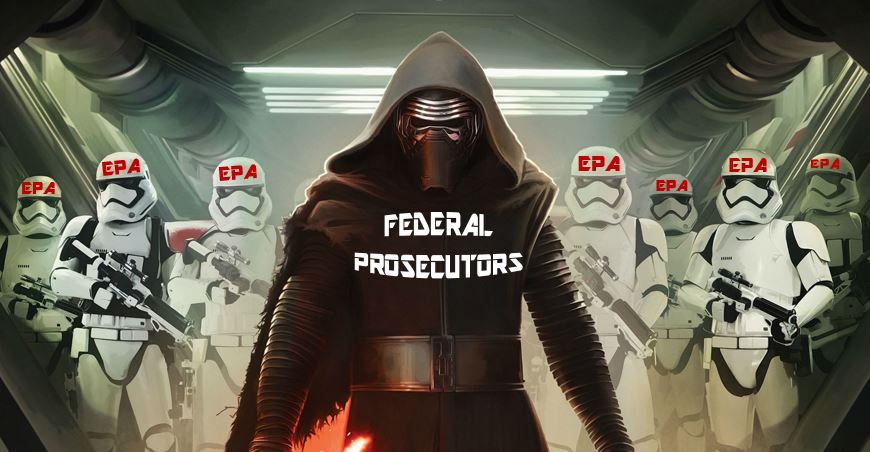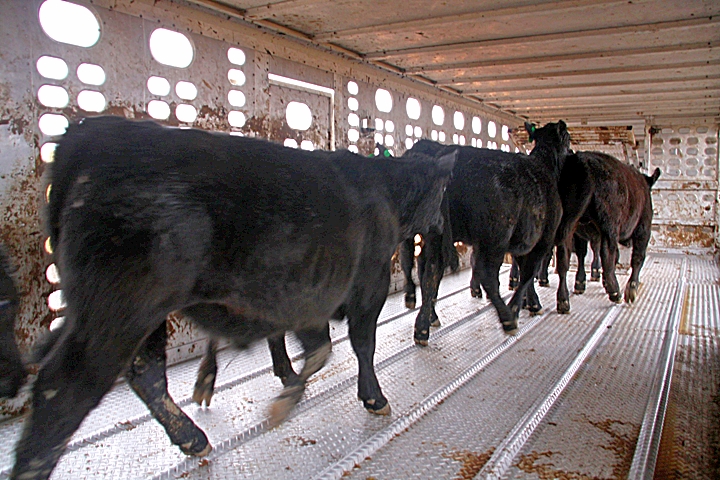That’s what happens, for instance, when the EPA threatens landowners with $37,500 per day in fines ($1 mil per month) for actions as innocuous as building a livestock pond, clearing trash from a ditch, or plowing a field. None of those look like the “discharge” of a “pollutant” into a “navigable water” but, if you squint real hard, they have some small similarity to what Congress was getting at in the Clean Water Act.
Federal prosecutors’ new favorite weapon: Environmental Criminal Law
The Financial Times reports on federal prosecutors’ growing and aggressive use of the criminal provisions in several environmental statutes, even for violations that are at most tangentially related to the environment or directly addressed by some other law.
The US Department of Justice, under a year-old Obama administration initiative, has been combating workplace safety violations using laws designed to protect the nation’s air and water. The reason is straightforward: tougher punishments.
It was inevitable that over zealous prosecutors would gravitate towards environmental crimes, which are typified by vague, overly broad prohibitions and extreme punishments. Typically, these laws are abused to threaten or coerce people for extremely minor actions that bear some similarity to what the laws were attended to combat.
That’s what happens, for instance, when the EPA threatens landowners with $37,500 per day in fines (~$1 mil per month) for actions as innocuous as building a livestock pond, clearing trash from a ditch, or plowing a field. None of those look like the “discharge” of a “pollutant” into a “navigable water” but, if you squint real hard, they have some small similarity to what Congress was getting at in the Clean Water Act.
However, prosecutors can also bring charges against actions bearing little to no resemblance to what the statute they’re using was aiming at. The Supreme Court has recently pushed back against several of these abusive prosecutions. You may recall the woman who was prosecuted for chemical weapons violations when she tried to poison her husband’s mistress. Or the prosecution of a fishermen for throwing too-small fish overboard under the anti-document-shredding law enacted in the wake of Enron. The reason for both of these absurd prosecutions, and those discussed in the Financial Times story, is that the chosen criminal provisions carried more severe punishments.
It’s sort of a reverse-Capone. As you know, Al Capone was a notorious Chicago gangster in the 20s. The federal government wanted to prosecute him for his crimes, but couldn’t adequately prove them. So, instead, it prosecuted him for a less serious offense that it could prove–tax evasion, because he didn’t report his illicit income.
The recent spate of overly aggressive prosecutions take the exact opposite tact. If the evidence strongly supports a minor violation, prosecutors will instead charge a much more serious offense in the hopes of securing a more severe punishment. It would be like charging everyone who commits tax evasion with a RICO violation (the federal statute used to prosecution the mafia and other large criminal conspiracies).
In effect, prosecutors are second-guessing or, to be more precise, disregarding Congress’ decisions about how severely to punish relatively minor violations. Considering that most federal prosecutors are career bureaucrats, therefore unelected and unaccountable, that’s dangerous.
Jonathan Wood

Free Range Report



Isn’t it horrifying when the major media, universities, EPA, DOE, NOAA, even the IPCC and NASA have become so politicized that they aren’t trustworthy.